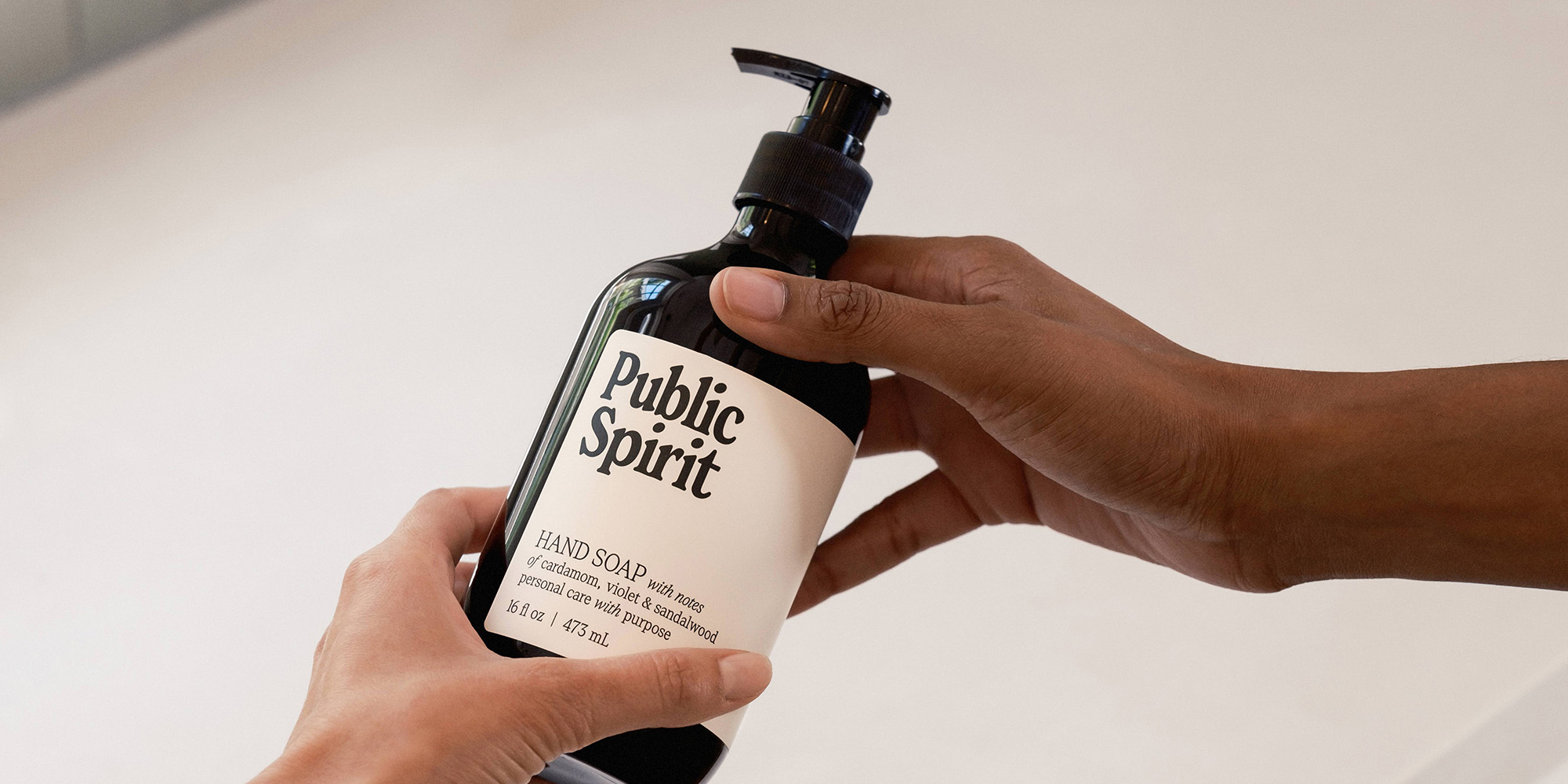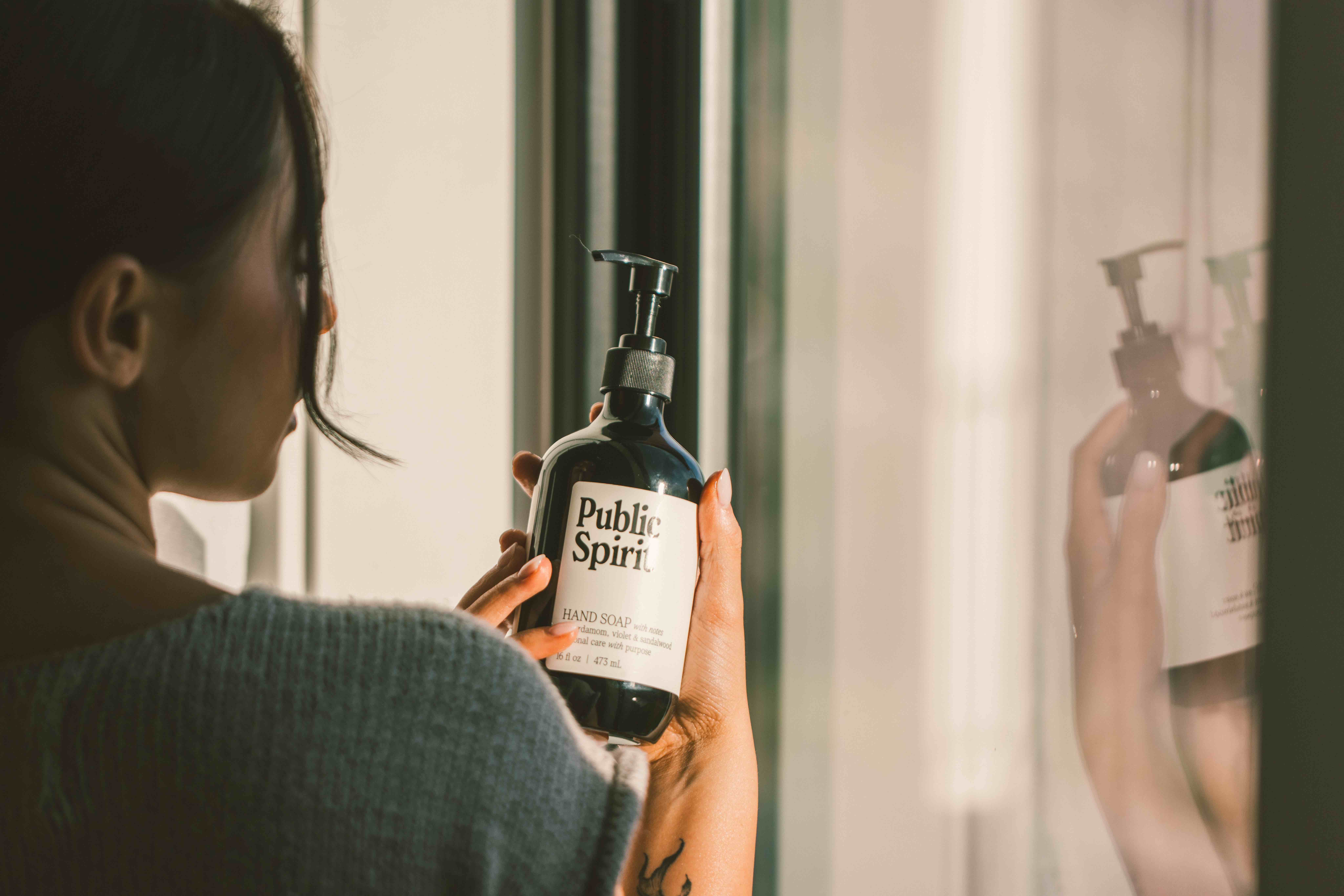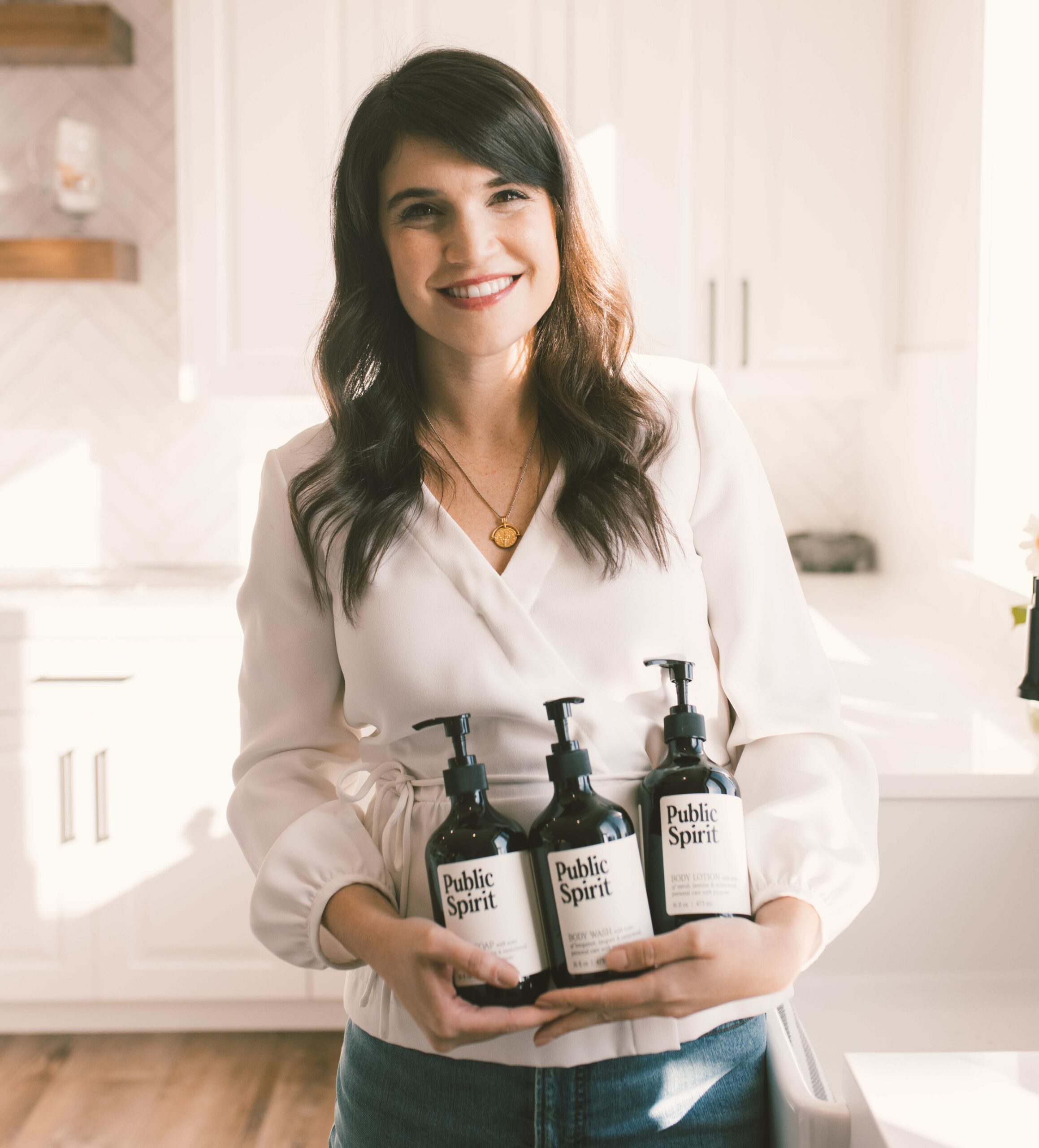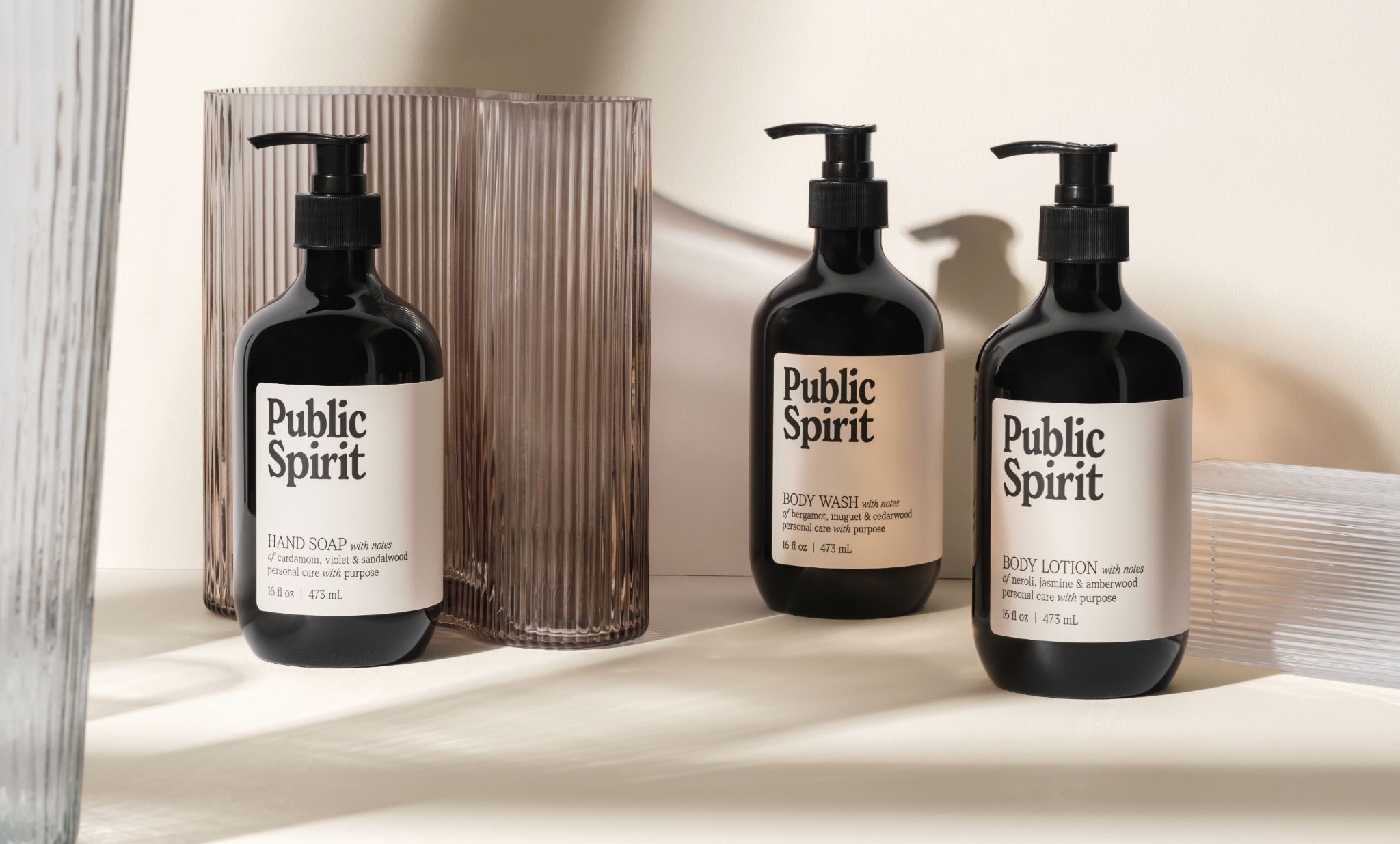
L’Oréal Alumna Allie Mann Launches Public Spirit To Reinvent The Purpose-Driven Brand Model
Toms launched in 2006 with a buy-one-give-one giveback program. Seventeen years later, Allie Mann thinks it’s time to reinvent the purpose-driven business model. The former senior global manager at Perricone and assistant VP of global of global marketing at L’Oréal-owned Kiehl’s is launching Public Spirit, a personal care brand that combines donations with calls to actions to spark real change.
“Our goal really is to not only introduce a new type of purpose-driven brand model, but also to introduce it to the world of beauty and personal care, which is a huge category that really almost everyone is a consumer of,” says Mann. “There’s going to be a lot of things that we’re doing differently as part of this. One of them is we’re always going to be supporting upstream causes and organizations, really focusing on the ones that get to the root of the problem to help create lasting meaningful impact, and our work is going to go beyond donations with everyday tips and education to help our consumers take their impact further.”
Public Spirit is beginning with a commitment to community development by donating 10% of profits from sales of its products—its initial collection consists of $14 Hand Soap, $19 Body Wash and $24 Body Lotion—to the Bay Area job training, college promotion and affordable housing nonprofits, respectively, Year Up, ScholarMatch and Mercy Housing. Simultaneously, it will be highlighting partnerships, events and activities on social media platforms and other avenues to encourage people to get involved.

“All of these actions we’re going to be pulsing throughout all of our content and our resources are small and will only take a few minutes so that people can feel they’re attainable, but we do believe that these actions can have a bigger, more compounded effect as we grow our community and more and more people participate,” says Mann, noting, “For example, we might have a social media post that shares a script for calling your local representative to advocate for an important issue.”
As Public Spirit’s tagline “self-care meets community wellness” suggests, self-care is a big component of its business, too. At the heart of that is products that provide affordable luxuries. The brand’s prices were carefully chosen to be below $25 for 16-oz. recycled plastic bottles, and its vegan, cruelty-free formulas steer clear of parabens, sulfates, phthalates, mineral oil, dyes and silicones. While Public Spirit’s prices are above the prices of personal care brands positioned as mass, where a hand wash can easily be found for $5, they’re below prices at premium brands such as Aesop and Byredo, where hand washes are $41 and $68.
“There are so many things that happen that consumers really want to get behind, but they don’t really feel like they know where to start.”
“We are seeing this big surge of luxury hand soaps in the market, and what we thought was really interesting is it was almost becoming a status symbol item to have fancy hand soap on your bathroom or your kitchen skin. People were really loving these types of products,” says Mann. “However, at the same time, there was a lot of people that were like, ‘I can’t really afford to spend $50 on a hand soap for my bathroom, it’s just not realistic.’ So, we did see an opportunity there to bring the kind of look and feel and experience of a product like that into more of an affordable price point.”
Mann teamed up with the agency Nice People to craft Public Spirit’s minimalist cream and black design that’s meant to be universal and not distract from the brand’s broader purpose. Mann says, “We wanted to make sure it was the type of product that would look good really in most people’s homes. So, we didn’t want to have over-the-top, colorful, out-there branding.”

The concept for Public Spirit occurred to New York-based Mann five years ago when she was at Perricone and lived in San Francisco. She says the disparities evident in the city prodded her to ponder “possible solutions to issues in my community, and I really just kept coming back to the idea of how impactful it could be if a business used its audience and resources to create change.” Among developed countries, the United States leads in wealth disparity, and New York and San Francisco rank among the top 10 cities in the country for income inequality.
Tapping her experience in the beauty industry, Mann conducted a competitive analysis to understand the personal care field Public Spirit would be entering, large-scale consumer surveys and interviews with potential customers. What she learned from the research validated her theses that there’s room in the field for an affordable luxury entrant and that people are generally disconnected to the prevailing giveback models. Those learnings informed her decision to rotate the organizations Public Spirit donates to every few months and have its customers dictate its causes.
“I actually do believe that businesses can be a really powerful force for good.”
Speaking of the prevailing giveback paradigm, Mann says, “A lot of consumers think, how is that really helping people? Or maybe it’s supporting a cause it doesn’t really resonate with them. They feel like the cause is something that’s important to the brand itself, but not to them. There are so many things that happen that consumers really want to get behind, but they don’t really feel like they know where to start. We’re always going to be focusing on social impact causes, but what we wanted to do was evolve that to really listen to our customers to support the causes they care most about.”
A risk with a brand tied closely to causes is being dragged into political discussions that could turn off factions of consumers. Mann says that’s a reason Public Spirit is kicking off with community development. “It’s something that really anyone can get behind. It’s all about the idea of creating better, more equitable communities. So, I don’t see anything political with that,” she explains. “That being said, I do feel like, in today’s day and age, consumers do expect brands to take a stance on these things, and they want to support brands that stand for something.”

Mann envisions Public Spirit’s target customers as people drawn to brands taking stands on causes, but not them alone. The brand will be seeding products to mindful living, parenting, home and hospitality creators to spread the world. Initially, it will be in direct-to-consumer distribution to establish a presence, although Mann aspires to place it in retail down the road. She declined to disclose a first-year sales projection for self-funded Public Spirit.
The brand’s success will depend on whether people value a brand’s public spirit. Mann is convinced they do. “Everyone recognizes the power of businesses, especially the really big ones in our country, so really imagine how much of an impact they could make if they put some of their resources and their audience towards good,” she says. “That was really how I thought of this idea and leveraging that for good. I actually do believe that businesses can be a really powerful force for good.”





Leave a Reply
You must be logged in to post a comment.